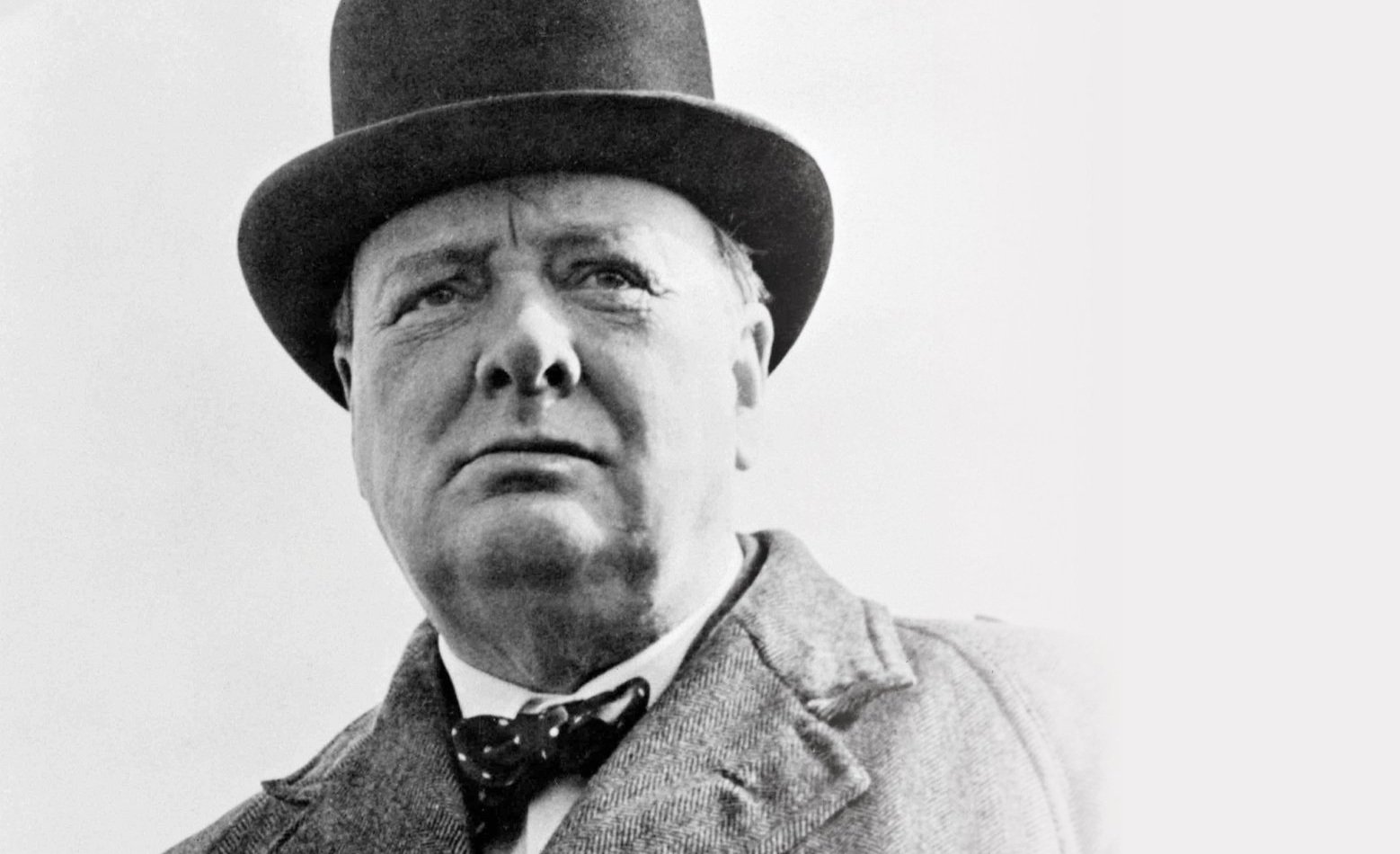WINSTON CHURCHILL: FAILURE IS NOT FINAL
BY JOSH KOSNICK
When I was approached by ATF Magazine to be a contributor on leadership, I was both honored and excited. Building better leaders is not only something I am passionate about, it is what I do. My goal is to make sure I can connect the dots between this publication’s core purpose and my take on leadership both past and present.
As I was brainstorming where to begin for this inaugural article, my mind narrowed in on not only one of the most revered (and controversial) leaders of the 20th century, but also a cigar industry icon: Sir Winston Churchill.
Once, King George asked Churchill how he drinks and smokes so much, and his reply, “Practice.”
Before we get into the lessons we can learn from Sir Winston’s leadership, let’s explore his tobacco obsession. He began smoking cigarettes in his teens, forcing his mother to offer bribes (including a pistol) in an effort to rid him of the habit – imagine for a moment how that might go over in today’s world. Apparently, the bribe was effective, at least until he traveled to Cuba after graduating from the Royal Military Academy Sandhurst. He only spent a few months there, but immediately became hooked on the country’s most famous product – the hand-rolled Cuban cigar.
It is said that Churchill smoked 10 cigars every day, his two favorites being Romeo Y Julieta and La Aroma de Cuba. His collection ultimately included upwards of 4,000; all carefully categorized, labeled and stored in a specialized room adjacent to his study. Churchill was a true aficionado!
Churchill did not neglect his whiskey. It is rumored that his day’s first glass of scotch and cigar were consumed before he even got out of bed in the morning. He certainly loved and indulged in the finer things in life. To say that he indulged is a bit of an understatement. Most considered him a full-blown, functioning alcoholic. Once, King George asked Churchill how he drinks and smokes so much, and his reply, “Practice.”
Sir Winston Churchill is widely regarded as the greatest leader of the 20th century. What was it exactly that made him so exceptional? Many will speak of his courage and determination in the face of extreme evil and adversity which are leadership virtues that we should commend. Many will mention what a phenomenal orator Sir Winston was. He is often quoted still to this day. He published over 10 million words in his lifetime and gave thousands of speeches. Focusing on his truth-telling as honesty and/or trustworthiness is immensely important as it pertains to quality leadership.
In human nature, each of us are bestowed certain gifts, and over time we have the ability to manifest those gifts into strengths.
All the above traits and many more have been used to describe Sir Winston Churchill. However, no leader is perfect as all leaders are merely human beings, and to be human is to be imperfect. Churchill was no different and some historians will say that he is as well known for his failures as his successes. In fact, to some, he was an utter and total mess in his personal life. Alas, he was the right leader at the right time for one of the most perilous times in human history.
In human nature, each of us are bestowed certain gifts, and over time we have the ability to manifest those gifts into strengths. Whether you believe in God or something different, we can all agree that we are uniquely different. In each of our strengths is a corresponding weakness and for every weakness a corresponding strength. Churchill was a phenomenal orator. He spoke with such confidence and passion that he emboldened a nation (and subsequently the entire Western world) to stand up against one of the greatest evil forces to walk this earth in Hitler and his allies.
“This is the lesson: never give in, never give in, never, never, never, never—in nothing, great or small, large or petty—never give in except to convictions of honor and good sense. Never yield to force; never yield to the apparently overwhelming might of the enemy.” – Harrow School, 29 October 1941
“The mood of Britain is wisely and rightly averse from every form of shallow or premature exultation. This is no time for boasts or glowing prophecies, but there is this—a year ago our position looked forlorn, and well-nigh desperate, to all eyes but our own. Today we may say aloud before an awe-struck world, ‘We are still masters of our fate. We still are captain of our souls.'” – House of Commons, 9 September 1941
A couple of examples of his mastery of words. I can hear that proper English in my head as I read each of these. His confidence and surety were some of his leadership hallmarks, but perhaps lesser known is how much Churchill suffered from periods of uncertainty. This included many periods of times when he suffered from severe depression that he dubbed his “black dog moods.” Perhaps Churchill was somewhat of a pioneer in giving mental illness a name, even if it was naming it for his own purposes.
The brilliance of a great leader and a mark of any great human is learning from their past mistakes!
Widely considered the biggest blunder on Churchill’s resume was the Battle of Gallipoli in 1915 during World War 1. Churchill fancied himself a military strategist and became the face as well as the chief advocate of this idea as he stated with a win in the Dardanelles it could end the “Great War.” Things didn’t go according to plan on multiple fronts and not only did the British Navy lose multiple ships, but it cost the Britons and their allies over 250,000 men and ended in a stalemate that did not end the war.
This was a colossal failure and a memorable black mark on the resume of Sir Winston. A failure that would plague him for the next 25 years as political adversaries would quip, “Remember the Dardanelles!”
The brilliance of a great leader and a mark of any great human is learning from their past mistakes! The “British Bulldog” not only learned from his past mistakes but was emboldened by his learnings when he became Prime Minister. He wrote, “All my past life had been a preparation for this hour and this trial.” In that one sentence, we see that steely confidence we’ve come to know from quite possibly the 20th century’s most notable leader.
There isn’t an agreed-upon reason as to why the Churchill name has stuck in the cigar industry 50+ years past his death. Was it that he smoked hundreds of thousands of cigars in his lifetime? Was it that he once had the Royal Air Force design a special mask for him so that he could smoke his cigars 15,000 ft. above the ground? Was it that he gave zero care to where he smoked his beloved cigars whether it was in bed, planes, the Parliament, dignitaries’ homes, or anywhere he pleased?
No matter, the indelible image of Sir Winston Churchill in a bowler hat with a cigar pursed between his lips is as prominent in the cigar world as ever before. I for one believe that his mark in the cigar industry would have never happened had he not been the steadfast leader he was in the 20th century. For the leader he was in war and for bringing the wonderful world of cigars into the mainstream, we tip our proverbial bowler caps to you Sir Winston!


